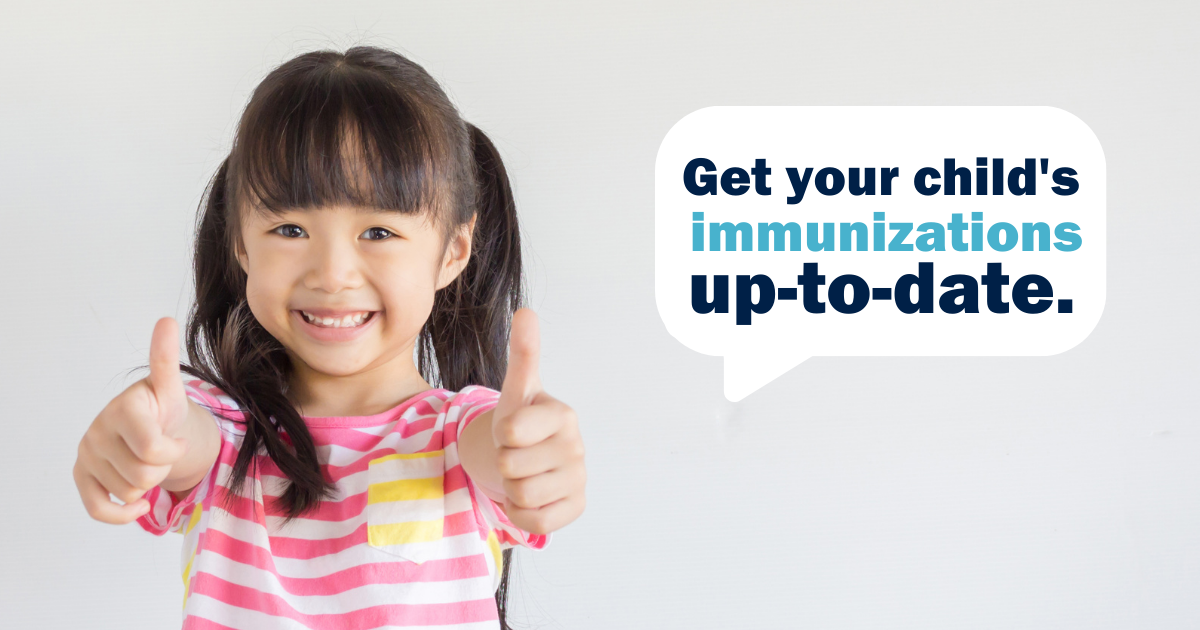Search the Health Department
Updates from the Health Department

April 14, 2025
Fairfax Health District's Medical Reserve Corps (MRC) program has been awarded the 2025 Virginia EPIC Engage Award — a statewide recognition that celebrates excellence and innovation in volunteer engagement.
Presented by the Virginia Department of Health (VDH), the EPIC Award — which stands for Engage, Partner, Innovate, and Champion — honors outstanding health district leaders who go above and beyond to strengthen their local MRC programs. Fairfax Health District was selected for the Engage Award because of its strong, creative engagement of its MRC volunteers.
"Our MRC volunteers' service, their example and commitment throughout the years have been inspiring and helped build a healthier more resilient Fairfax," said Paula Rosca, Fairfax MRC program manager. "We truly have the best team of volunteers, and I am so honored that our program has received this award."
Over the past year, Fairfax MRC volunteers have supported a wide range of public health activities, from vaccination clinics to disaster preparedness outreach and training exercises. The team has also expanded its volunteer base and strengthened relationships with community partners across the county.
You don't need to be a healthcare professional to make a difference in the MRC. In fact, you don't need to have any sort of medical background at all. The Fairfax MRC welcomes volunteers of all backgrounds and skill sets. Whether you're a teacher, retiree, or IT professional, your unique skills are valuable in supporting emergency responses and everyday public health efforts.
Ready to join the MRC? Learn more and begin your volunteer application.

April 11, 2025
Oropouche and Dengue Updates
If you are traveling internationally this Spring Break, take care to avoid diseases carried by insects. Before you travel, it is important to remember to prevent bug bites and, in some cases, re-consider traveling.
Oropouche is a disease caused by the Oropouche virus. It is spread through the bites of infected biting midges (small flies) and mosquitoes. People who get infected with Oropouche virus may have symptoms like headache, fever, muscle aches, stiff joints, nausea, vomiting, chills, or sensitivity to light. Some people may develop severe disease that can include meningitis. The Centers for Disease Control and Prevention (CDC) have issued a Level 2 Travel Health Notice for Oropouche in parts of Brazil and Panama. The state of Espírito Santo in Brazil is north of Rio de Janeiro and the Darién Province in Panama is south of Panama City and borders Colombia. All travelers to these affected areas should take steps to prevent bug bites during travel. Pregnant people should avoid travel to these areas and if travel is unavoidable, should strictly follow Oropouche prevention recommendations. There is also a Level 1 Travel Health Notice for Oropouche in many other countries in the Americas and travelers should practice usual precautions to prevent bug bites.
Additionally, because sexual transmission of the virus from an infected man to their partner is possible, travelers should consider using condoms or not having sex during travel and for six weeks after returning.
Dengue is another disease that is spread by the bite of an infected mosquito. Symptoms of dengue may include fever, headache, nausea, vomiting, rash, muscle and joint pain, and minor bleeding. Dengue can become severe within a few hours. Severe dengue is a medical emergency, usually requiring hospitalization. Dengue infection levels remain high in some United States territories (such as Puerto Rico and the US Virgin Islands) and many other countries globally. There is a Level 1 Travel Health Notice for dengue around the globe. Travelers should prevent mosquito bites by using an EPA-registered insect repellent, wearing long-sleeved shirts and long pants when outdoors, and sleeping in an air-conditioned room or room with window screens.
If you return from travel and are experiencing symptoms like those described above, contact your healthcare provider and tell them about your recent travel.
Get more information on up-to-date travel advisories from the U.S. State Department.

April 9, 2025
Each year, National Public Health Week is observed to recognize public health contributions and call attention to issues that are essential to protecting and improving our nation's health. This National Public Health Week, April 7-13, the theme: "It Starts Here!" reminds us that the health of our community starts with each of us making a difference in our homes and communities.
At home, we play a part by ensuring loved ones and children are up to date on vaccinations. On-time vaccination throughout childhood is particularly essential because it helps provide immunity before children are exposed to potentially life-threatening diseases. And regular vaccination also limits the spread of disease, especially in childcare and school environments. Other practical and simple measures we can all take to prevent the spread of disease include washing our hands frequently, covering coughs and sneezes with a tissue or the inside of our elbow, and staying home when sick. We can also lower our risk of exposure to vector-borne diseases from mosquitoes and ticks by eliminating standing water breeding sites around our home and by wearing repellents when spending time outdoors.
The power to share Fairfax's health lies within Fairfax - if you live, work, or play in Fairfax, then there is no better place to begin making a change than right here, in your own community. Join together with your neighbors, with our local health coalition (the Partnership for a Healthier Fairfax), or with other community groups, to create change and advocate for it.
— Vinu Ilakkuvan, Founder and Principal Consultant of Pop Health, LLC and Co-Chair of the Healthy Environment and Active Living (HEAL) Team for the Partnership for a Healthier Fairfax
Board of Supervisors Public Health Week Proclamation
The Health Department remains committed to protecting our residents from emerging and re-emerging public health threats, especially at-risk and vulnerable groups, such as older adults, children and those with underlying medical conditions. Public health faces a wide range of community challenges like the opioid epidemic and mental health disorders; communicable diseases, such as tuberculosis, HIV/AIDS, and most recently, vaccine preventable diseases, like measles. To meet these challenges, we continue to build our capacity to access and analyze health data, strengthen our partnerships with county and state agencies and continually improve our public health surveillance capabilities to meet needs into the future.
The Fairfax County Board of Supervisors has designated April 7-13 Public Health Week. Watch the proclamation reading along with Deputy Director for Innovation and Planning Christopher Revere's remarks.
The Fairfax County Health Department utilizes tools to increase public knowledge of local health data and initiatives. Follow the Fairfax County Health Department on Facebook, Nextdoor, Instagram, YouTube, and sign up to receive monthly updates through the Public Health in Action e-newsletter.

April 8, 2025
No Summer Slide! Keep Your Student’s Communication Skills Strong
Summer break is around the corner, but that doesn’t mean progress in speech therapy should pause. The Health Department’s Summer Speech Therapy Program is designed to help school-aged children continue building their communication skills, so they don’t lose momentum during the break.
Speech and language development is a journey, and consistency is important. By enrolling in the summer program, school-age children who have an established Individual Education Plan (IEP) will:
Maintain and strengthen the progress they’ve made throughout the school year
Build confidence in their speech and language skills in a fun, engaging setting
Start the next school year with continued growth instead of playing catch-up
Experienced speech therapists create a supportive, motivating environment where children can thrive while still enjoying their summer. Students receive 6 weekly sessions of 1-on-1 speech therapy based on their IEP. Group therapy sessions are available based on child and therapist availability.
There is a fee for this program. Medicaid and sliding fees are also available for those who meet income eligibility requirements.
Don’t let hard-earned progress slip away—keep your child’s momentum going strong. Limited spots available. Learn more about the program or register your child by calling Speech, Language, and Hearing Services at 703-246-7120 or TTY 711.
Contact Speech, Language and Hearing Services
Wash Your Hands Often
![]()
Mosquito & Tick Bite Prevention
![]()
Health Dept. Strategic Plan
![]()
Parents: Get your child's immunizations up-to-date!
 Ensuring children are up-to-date on their vaccinations helps provide immunity before they are exposed to potentially life-threatening diseases.
Ensuring children are up-to-date on their vaccinations helps provide immunity before they are exposed to potentially life-threatening diseases.
And remember, vaccination it important at all ages. Parents, grandparents, and caregivers, make sure you are up to date, too!
Opioid Resources
Featured Video: Maternal Mental Health Awareness
Stay Connected with Public Health
Connect with us!
Make Health Happen: Join Our Team
Working in public health provides opportunities to make a difference in your community. Learn more about full-time, part-time, and internship positions.
About the Health & Human Services System
This agency is a part of the Fairfax County Health & Human Services System (HHS). The HHS System is a network of county agencies and community partners that support the well-being of all who live, work and play in Fairfax County.

